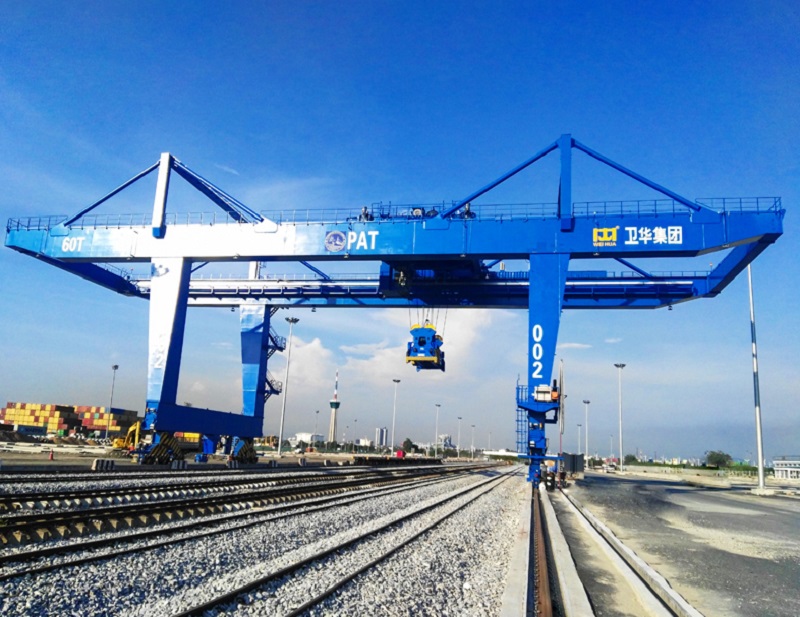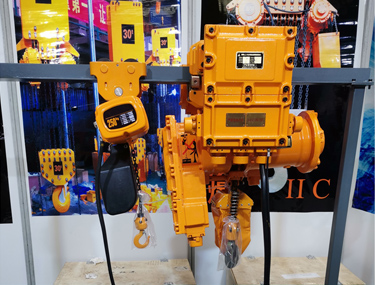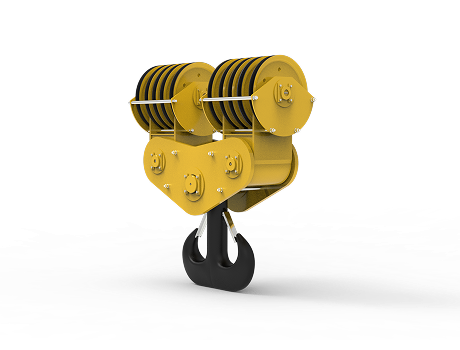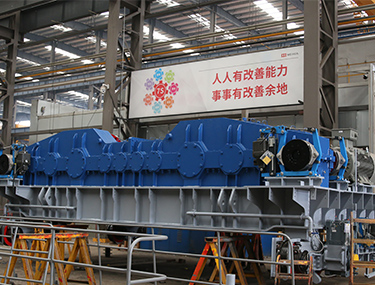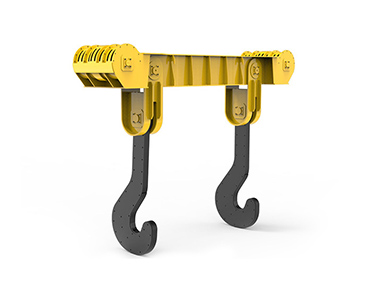The selection of container cranes needs to comprehensively consider the actual needs of the port/terminal, operational efficiency, cost-effectiveness and future development. The following are key selection points:
1. Container crane operation demand analysis
Container throughput: Determine the number of cranes and efficiency requirements (such as the number of lifts per hour) based on the annual/monthly throughput.
Ship type: Adapt to the ship size (such as a post-Panamax ship requires a quay crane with a larger span) and draft depth.
Container specifications: Compatible with 20ft, 40ft, 45ft, refrigerated containers, oversized containers, etc., considering the demand for double-box spreaders.
2. Selection of crane type
Quay crane (shore container crane):
Applicable to large ports, the span (outreach) needs to cover the width of the ship (such as 22 rows of containers require more than 60m).
The lifting height needs to meet the requirements of large ships (such as 16-layer box height, 40m above the track height).
Yard crane (tyre/rail gantry crane, RTG/RMG):
RTG is flexible but requires transfer space, and RMG is suitable for high-density yards with fixed tracks.
Stacking height (usually 4-6 layers) and span (such as 6+1 lanes) are key parameters.
Others: auxiliary equipment such as multi-purpose gantry cranes (small ports), straddle carriers, reach stackers, etc.
3. Container crane technical parameter matching
Container Crane Lifting capacity: including the total weight of the spreader and container (such as 65 tons for 40ft heavy containers).
Container Crane Lifting speed: empty/full load speed affects efficiency (such as full load 70m/min, empty load 180m/min).
Trolley travel speed: quay cranes are usually 30-50m/min, and yard cranes are 100-150m/min.
Automation level: semi-automatic/fully automatic operation (such as remote control, automatic positioning) can improve efficiency and reduce labor costs.
4. Site condition adaptation
Terminal load-bearing capacity: quay cranes have high requirements for track foundation (such as more than 10 tons/m²).
Yard layout: RTGs need to consider the turning radius, and RMGs need to reserve track space.
Climate environment: windproof level (such as anchoring devices required for level 12 typhoons), earthquake resistance, low temperature (such as anti-freeze design required for Russian ports).
5. Cost and benefit
Initial investment: high cost of automation equipment but low long-term operating cost.
Energy consumption: electric drive (RMG) is more environmentally friendly and has lower maintenance costs than diesel (RTG).
Maintenance convenience: modular design, local technical support capabilities.
6. Scalability and compatibility
Future expansion: reserve upgrade space (such as adjustable lifting height).
Intermodal transport: adapt to railway and road connection needs (such as double cantilever RMG).
7. Safety and environmental protection
Safety functions: anti-sway system, collision warning, emergency stop device.
Environmental protection requirements: low noise, zero emission (electric), LED lighting.
Recommendations for container crane selection process
Demand survey: clarify terminal throughput, ship type, and yard planning.
Solution comparison: technical parameters (such as efficiency, energy consumption) and cost analysis.
Field investigation: refer to similar port cases.
Risk assessment: including technical feasibility and financial payback period.
Through systematic analysis of the above factors, a container crane solution that takes into account efficiency, cost and long-term development can be selected. For ports with a clear trend of automation, it is recommended to give priority to automated or semi-automated models to enhance competitiveness.
